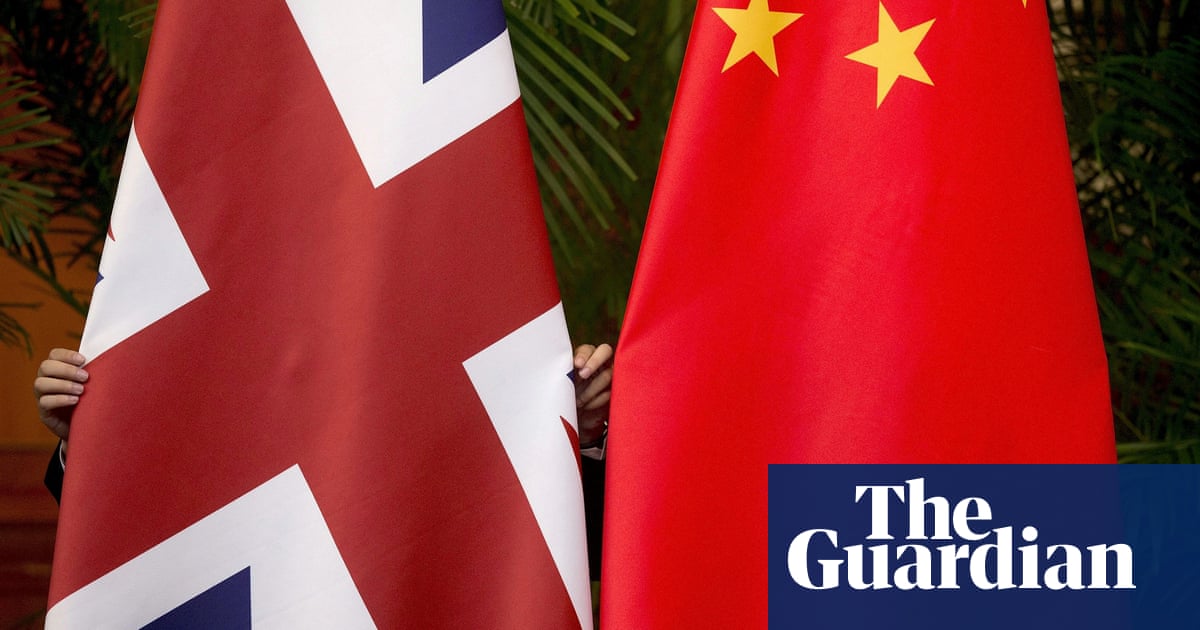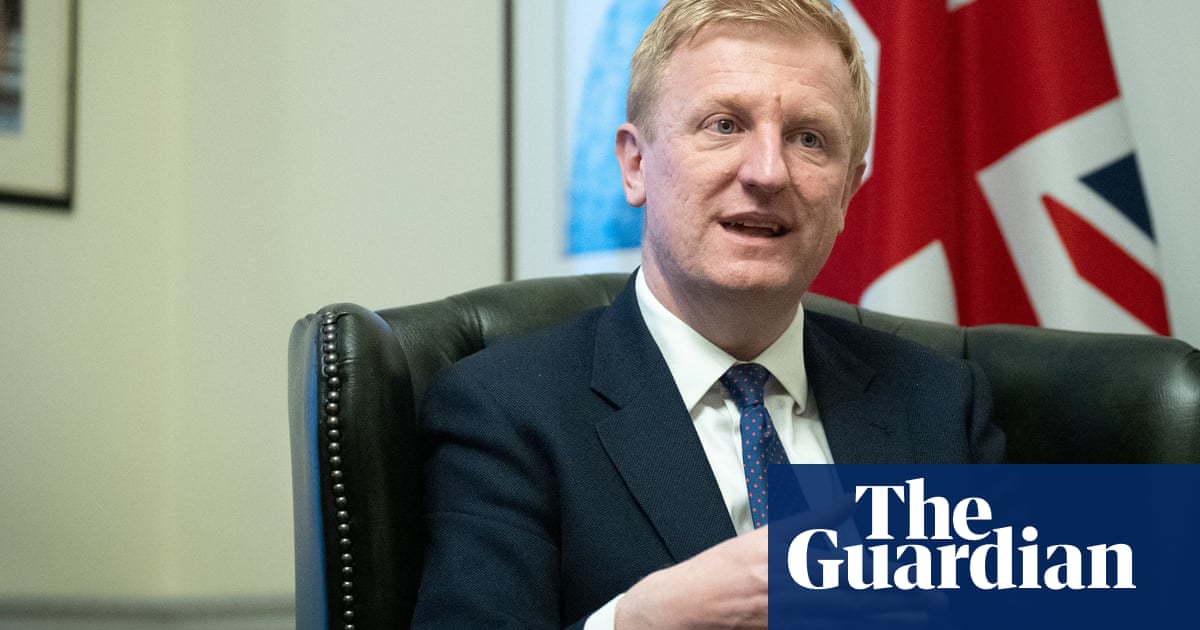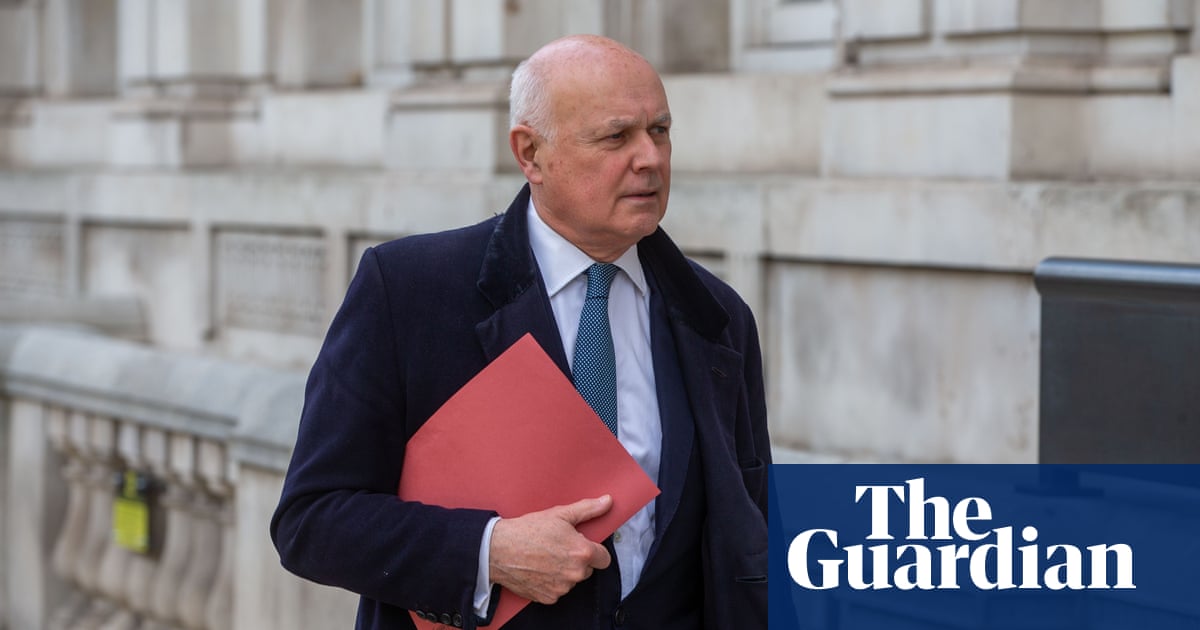
The UK government has been too slow to respond to cyber-attacks by China, the head of an international group of parliamentarians focusing on the issue has said, ahead of expected new British sanctions against Beijing.
Oliver Dowden, the deputy prime minister, is expected to announce the sanctions in the Commons on Monday, after what the UK says have been cyber-attacks against MPs and peers, as well as one targeting the Electoral Commission in which Beijing allegedly accessed the personal details of about 40 million voters.
Three MPs and a peer who have faced apparent hacking attempts will separately hold a press conference after being briefed by the director of security for the UK parliament.
All four – the Conservative MPs Iain Duncan Smith and Tim Loughton, the SNP’s Stewart McDonald, and the crossbench peer David Alton — are members of the the Inter-Parliamentary Alliance on China (Ipac), which groups together legislators from a number of countries, among them two dozen from the UK.
Luke de Pulford, the executive director of Ipac, said on Monday that he was surprised British ministers had taken so long to respond, especially given that the Electoral Commission hack was first detected in 2022.
With the cyber-attack taking place in 2021, and China only being linked to it now, “indicates that the government was a little bit reluctant to say that China had actually done this”, he told BBC Radio 4’s Today programme.
“There seems to be a reluctance in general to hold China to account for its abuses,” he said, adding that the UK had thus far imposed sanctions against some middle-level level officials in China over rights abuses in Xinjiang, but had failed to take similar action over Hong Kong, despite the UK’s historical role with the territory.
“The United States sanctioned over 40 members of the government in Hong Kong, and the UK, even though we are the ones with a legal responsibility, have sanctioned zero, not one,” he said.
There was a need for more help for MPs targeted by Beijing. “We need targeted sanctions on those responsible, but we also need support for members of parliament and those who are targeted by Beijing. This is pretty serious stuff.”
The junior energy minister Andrew Bowie refused to give any details about what actions Dowden might set out.
“You wouldn’t expect me to be able to go into more detail on issues of national security,” he told Sky News. “I’m sure we’ll be hearing more in the course of the day from the relevant ministers and the relevant departments.”
However, he insisted the government would “stop at nothing” to protect Britons from cyber-attacks.
He told LBC Radio: “The fact is that this government has invested a lot of time, money and effort in ensuring that our cybersecurity capabilities are at the place they need to be. We’ve increased the powers of our intelligence and security community to be able to deal with these threats.
“And we will stop at nothing to ensure that the British people, our democracy, our freedom of speech and our way of life is defended.”
He insisted that the government took a pragmatic approach to dealing with Beijing, amid reports that China’s EVE Energy was set to invest in a battery plant in the West Midlands.
“We have to have a grown-up, pragmatic relationship with China. And that means looking at each of these investments in the round, on a case-by-case basis, ensuring that our security and our individual liberties and freedoms are not undermined by any of the investments that are under way.”
MPs and peers are thought to be among 43 people who the government looks set to confirm have been targeted by cyber-attacks backed by the Chinese state.
The UK could impose sanctions on individuals believed to be involved in these acts of state-backed interference, including the attack on the Electoral Commission.












